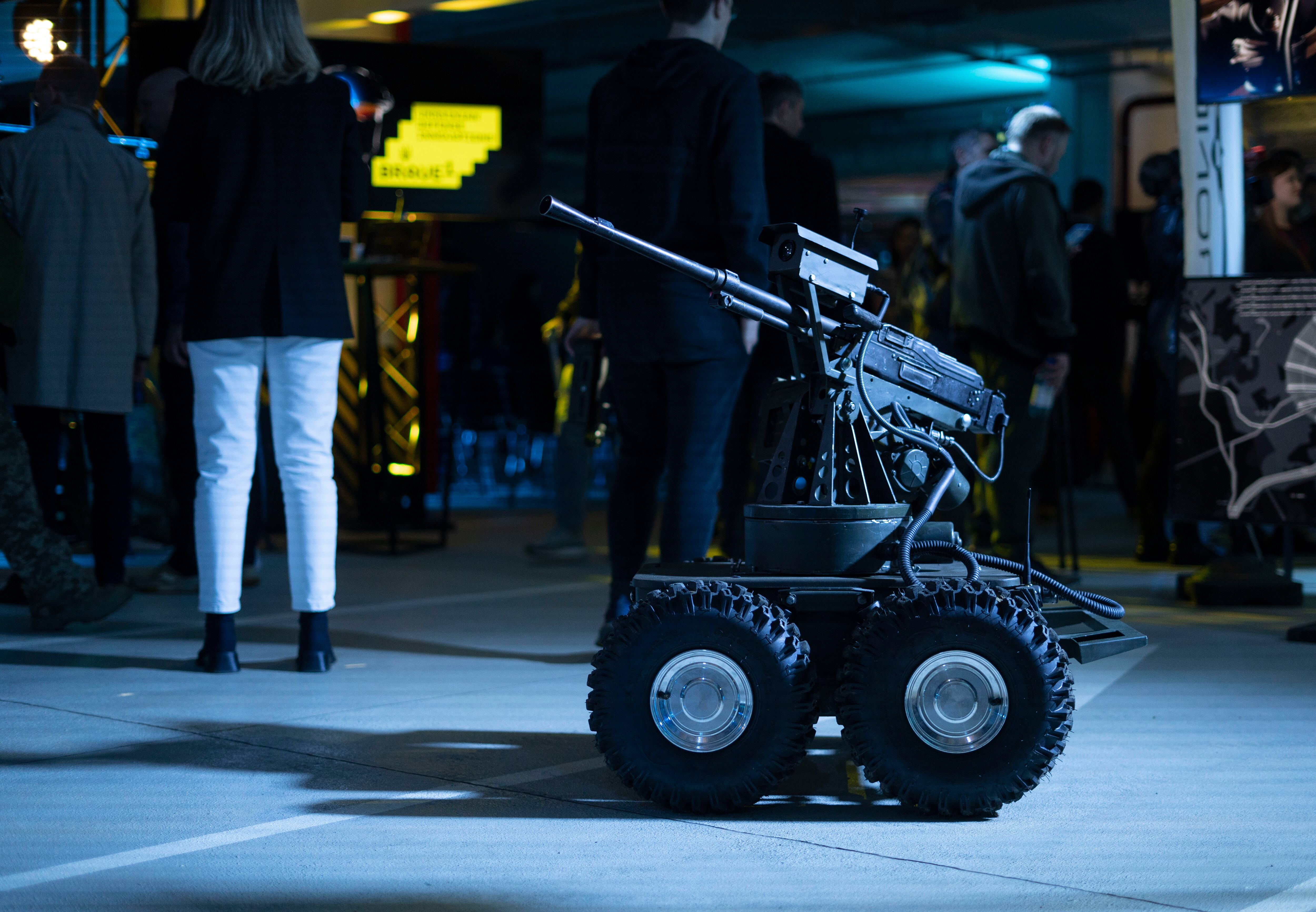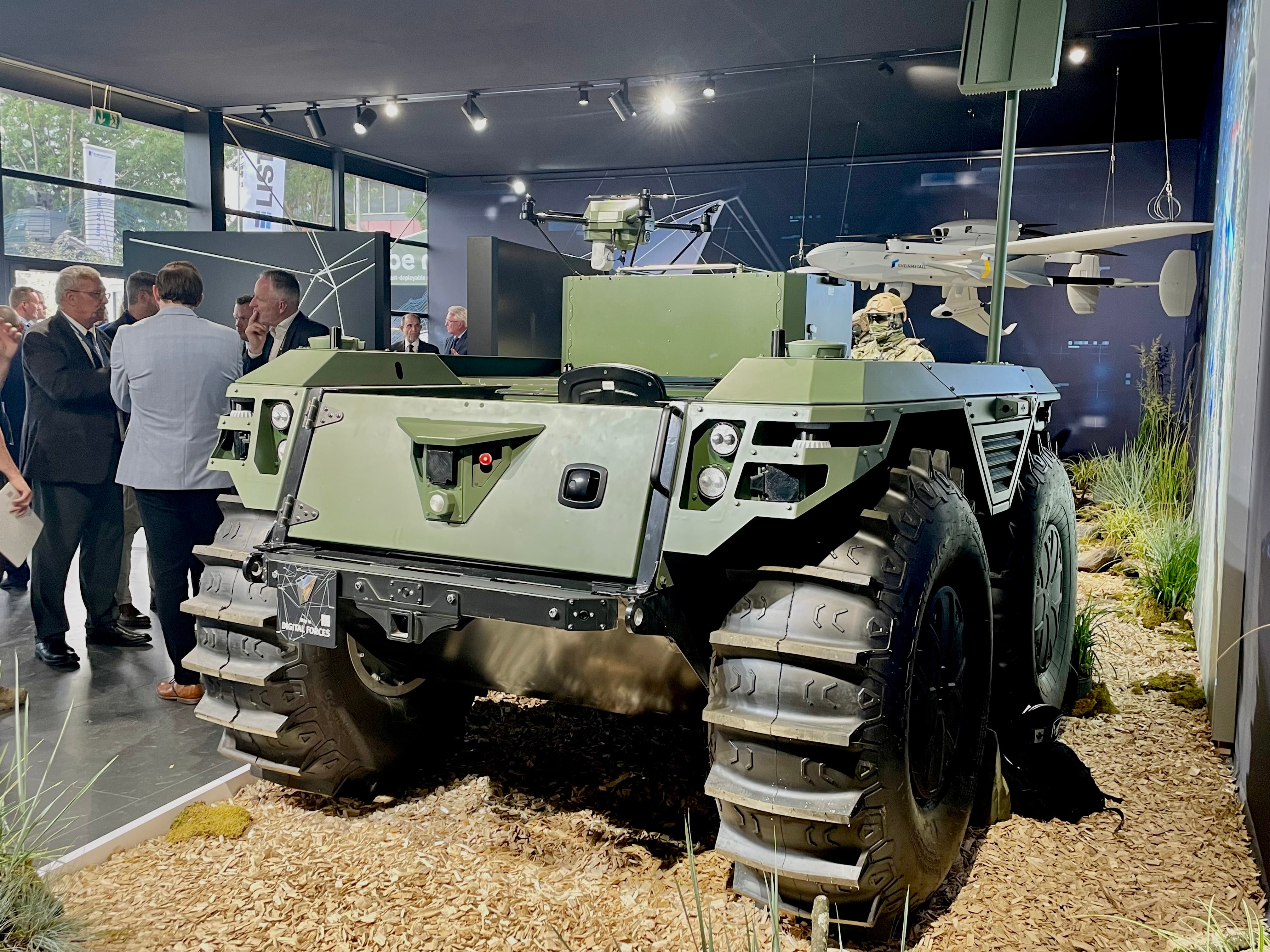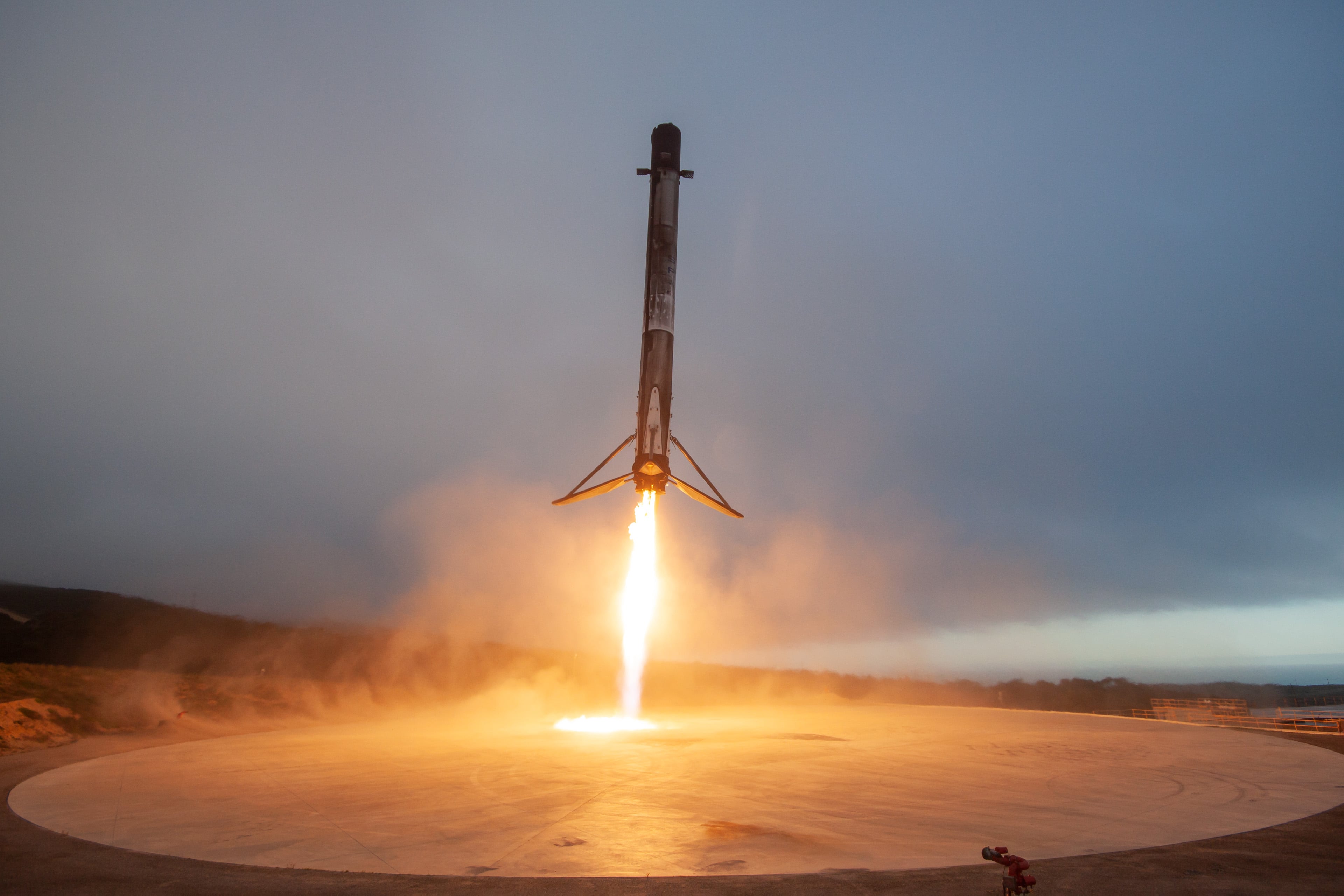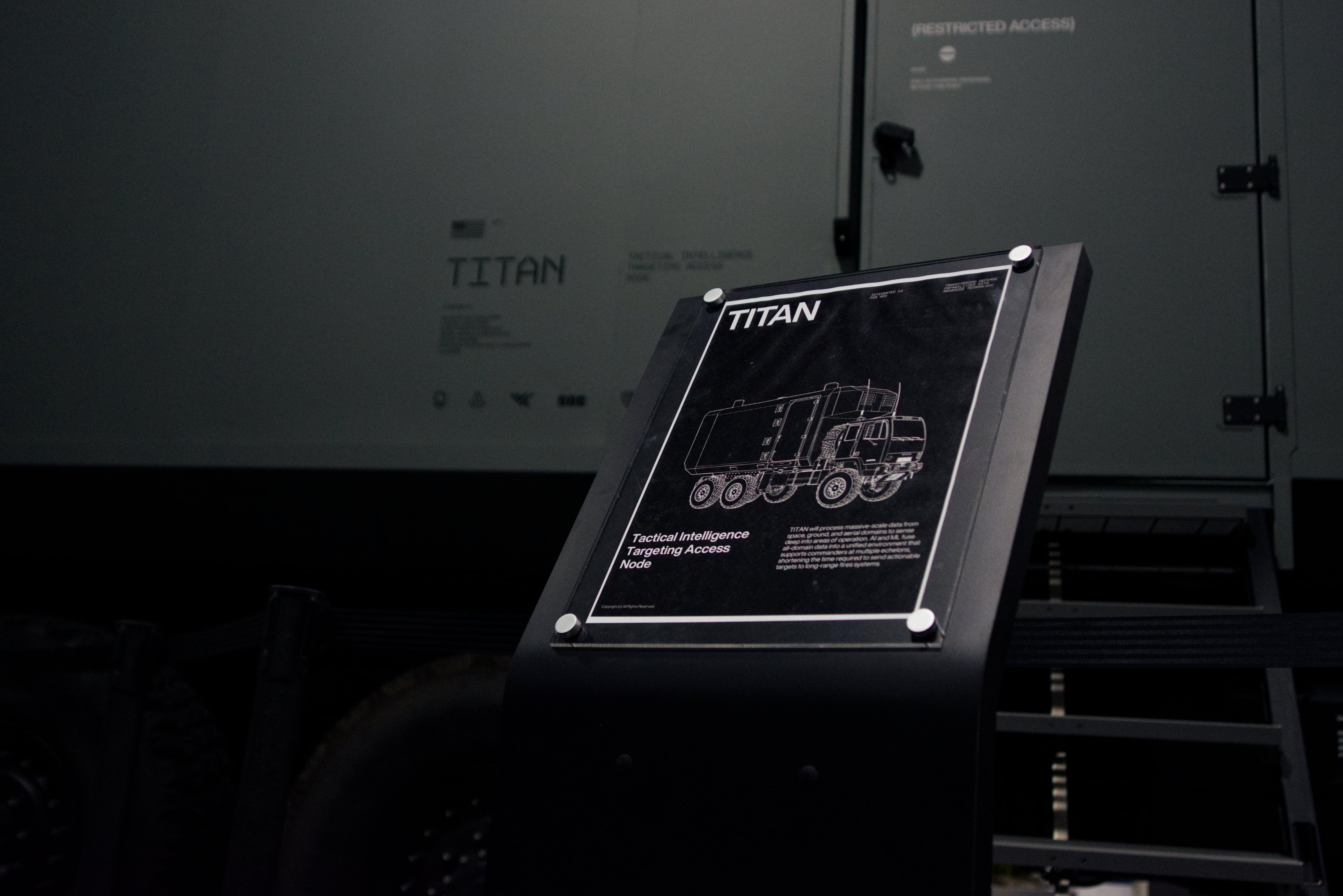PARIS — The next-generation of robot warfare is unfolding with the teaming of ground and air robots propelling each other forward.
At the Eurosatory trade show here, the U.S.-based company Teledyne Flir debuted a new unmanned ground vehicle, or UGV, mounted with its nano aerial drone, the Black Hornet 4, on top.
Dubbed the SUGV 325, the ground robot is light enough to be carried by a single person and is fitted with an arm-like structure for grabbing objects.
“We see robots as being good unmanned partners for unmanned aerial systems, you can lean into the good things of the robot – eight hours of runtime, capability to carry heavier payloads, and persistence – and pair it with the drone’s agility and speed,” Nate Winn, director of product management for unmanned systems at Teledyne told Defense News.
Both assets can be used to extend each other’s range, where if something is detected by the high-definition cameras onboard the UGV, the drone can be launched from the robot using the same controller to go investigate potential danger further away.
RELATED

The unmanned duo also enables it to increase the standoff distance between a threat and military personnel on the battlefield, Winn added.
“Any action in the battle space begins with gathering information, so you want the robot and or the unmanned aerial system to be the first point of contact with any potentially threatening situation,” he said.

The integration of aerial drones and combat robots into fighting units is something that the U.S. Army appears to be experimenting with.
Last month, footage branded with the U.S. Army’s Sandhills Project logo emerged on social media, in which more than a dozen drones are seen launched from a UGV in less than 15 seconds.
Another robot-on-robot combo at the trade show here was Rheinmetall Canada’s Mission Master CXT, which was armed with a tethered drone from the French company Elistair.
“We have already integrated it into our Mission Master command and control software, meaning that with the same control tablet, a single operator can control the UGV and the connected drone,” Etienne Rancourt, director of international business development at Rheinmetall Canada said.
The Elistair drone is able to follow the UGV at 30 kph (19 mph), at a 60-meter altitude autonomously.
Correction: A previous version of this story included erroneous information provided by Rheinmetall Canada regarding Elistair’s interaction with an unmanned ground vehicle. The company has clarified that the aerial drone can operate at a 60-meter altitude autonomously.
Elisabeth Gosselin-Malo is a Europe correspondent for Defense News. She covers a wide range of topics related to military procurement and international security, and specializes in reporting on the aviation sector. She is based in Milan, Italy.








